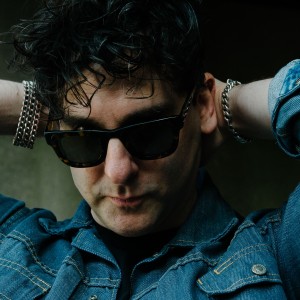There was a moment, several years ago, when three important American institutions in close succession appointed music directors who were little-known in the U.S. Manfred Honeck, who had been a violist in the Vienna Philharmonic and was quietly building a reputation as an inspiring conductor, came to the storied Pittsburgh Symphony Orchestra (the others, incidentally, were Nicola Luisotti at San Francisco Opera and Jaap van Zweden at the Dallas Symphony). All three have been perceived as success stories, none more so that Honeck, who has brought to Pittsburgh a sense of excitement that is rare. Rare because it is not only about glorious sound and viscerally thrilling performances. He projects an air of intelligence in music-making, of results through thought as through feeling, and maybe even a sense of excitement about intelligence, itself.
Released in time for the 2014 big Strauss anniversary year, Honeck and Pittsburgh have release a splendid new recording of three of Strauss' tone-poems (issued by Reference Recordings). Recorded live at Heinz Hall, it features Don Juan, Op. 20; Death and Transfiguration, Op. 24 and Till Eulenspiegel’s Merry Pranks, Op. 28. He spoke to me for Classicalite. Whether one would describe the conversation as moving from the outside in, or the inside out, entirely depends on your perspective. That's the kind of thing one asks oneself after a discussion with this fascinating man.
James Inverne: The Pittsburgh Symphony is famous for having a very individual sound. It is one of those increasingly rare bands that has that kind of legacy. You have been credited with not only maintaining, but building on that quality. And indeed you're familiar with that kind of sonic character from your days as a player in the Vienna Philharmonic, which also has that kind of tradition. When you came to Pittsburgh, did you set out to be the guardian of the sound? And how do you achieve that?
Manfred Honeck: It's a broader picture. Every orchestra consists of individuals whose sound depends partly on how they are trained in their music schools. Do they play in, say, the British way and bring that with them, or do they fit into a sound that already exists when they join an orchestra? But that said, the point about globalization of sound is an important one. We don't only have globalization in the economic or the political sphere, you see these things also in art.
I have nothing against globalization, it can be a wonderful thing in many respects. But in some ways not, and when you lose the individuality and the identity in an orchestra and in the arts, then it's a bit dangerous. There are nuances here, too. In certain pieces, an orchestra where the horn sounds like a violin, or the trumpet sounds like an oboe and so on can be wonderful. Herbert von Karajan was a master of that, of making everything sound polished. In many ways, this is fantastic, but what you lose is the character. If a composer asks for a certain color at a given moment, and he puts in a trumpet to achieve that certain color, then if that color is not very clearly identifiable it is dangerous because you lose some of the music's power. These colors, at times, need to be very specific; sometimes you need a bright red, sometimes a dark red, sometimes a bright yellow and sometimes a gold yellow. You must be able to bring all of this out in a score because that is a vital part of the composition.
Pittsburgh has kept this. And I look to see that things blend when we play. But when it is necessary to bring these specific qualities out, then it is extremely important to be able to fulfill that.
JI: Can you give a particular example to illustrate that?
MH: When we recorded Mahler symphonies and Mahler was asking, "be wild, be like a hammer" or even to make the music sound ugly. How many times do you hear Mahler and feel that it sounds too polished? The second movement of his first symphony is a dance, but it's a peasant dance and he asks for a very rustic, wild sound. In Mahler's style, it is not elegant, so a polished sound there is simply wrong.
JI: Michael Tilson Thomas and others have spoken of the Stanislavski element in Mahler, meaning that the composer was of the same school as that great acting teacher--essentially, Mahler as method actor, that when he puts in a feeling the players are expected to live it, and even more intensely than the signposts in the score suggest. That they are emotional gateways that the players must then go through, and go further. But surely it's also true that there has to be an iron control, otherwise there will be self-indulgence and even chaos. I should say by the way that Tilson Thomas's Mahler isn't remotely self-indulgent!
MH: I agree with all of that. In our era, we are all encouraged to get emotions under control. And that's right, things do have to stay in control. Not to seek to find a way to have things in control is without soul and is not connected with the human way of thinking and the human way of living. But it can go too far, and control is also dangerous in one way--I'm not speaking about chaos, that's completely different--but why not bring out the emotion? I spent six years in the Swedish Radio Symphony Orchestra. And I loved it, and I learned in that society that nobody should be better than the other. Well, this is good in many respects, but as you know, some really are better at certain things, but you're not allowed to show it or say it! So, while political correctness is not my field, in music, you have to have a different view, because a horn or another instrument must be allowed to speak out. If a sound is wild, that's not a mistake if the composer wanted to hear that or was trying to get at that in what he writes in the score. It indeed has a lot to do with emotions, and how many orchestras are satisfied if the music is merely together?
JI: Did you bring this Mahlerian idea across to your new Richard Strauss tone-poem recordings?
MH: Yes. At the beginning of Don Juan, Strauss writes these short accents--brilliant, wild, hot--hidden in the woodwinds and are never heard. There is a staccato in this scene. And on the other hand, the extremely smooth tenderness of the oboe in the middle part. When the horns come in with the famous theme, the hero theme, how many times do you just hear the same theme played twice? Yet, Strauss writes only forte for the first time and fortissimo for the second time. Normally, you hear both on the same level, which is not right. When he repeats the four bars it must be fortissimo, as if the first time you hear it this is the hero in his first years, and then we hear the climax of his career.
JI: So, the charting of the drama is all-important?
MH: All the Strauss tone-poems are like little operas. Strauss was, of course, an opera composer, and he knew how to inject every nuance and every feeling and every moment of atmosphere. We conductors have to discover them. But he precisely charts a dramatic development every bit as much as, say, Puccini does in his operas.
In fact, I wanted to delve further. So, for instance, you have the collapse of the hero and that crazy, unplayable scale down in the strings. When you get that falling down, you usually don't hear that in the story the body is falling down--the literal downfall. So, I put a little bit of extra drum in there, not that anybody will hear that, but this felt like a solution. Also, at the end when he dies, this must sound scary. The first and second violins and violas are playing a legato tremolo, and then you hear a climax like a heart attack. Then, it sounds like a fever, and if the musicians play this small crescendo which Strauss has written in a polished way, it will sound beautiful, but like tragedy. I wanted it extra dramatic so I put a bit of ponticelli on the strings to make the sound cold, freezing. And the listeners I hope will emotionally, immediately understand that it's not a pleasant way to end a life. Strauss has given us a shocking moment.
JI: Are you always so programmatic about the drama? Or, rather, does great music always have an ingrained and specific meaning?
MH: It's a question that must always be looked at: Is there any music without a program? Without a narrative? I cannot believe it. Playing chamber music helped teach me that. Every string quartet has a story behind it and tells you something. When I conduct these tone-poems and see these scores in front of me, it automatically comes back to me, that sense of how, as a chamber musician, I found the counterpoints--the same second line idea, the same main line. The system is the same, and I always need to find the story whatever I play.
JI: But is the story, itself, always clear?
MH: It is impossible to dictate what exactly is meant by music because the listeners could have different moods of listening. If you play the start of Mozart's G Minor Symphony to someone who is feeling sad, they will probably hear sadness in the music. Play the same to somebody who is merry, and they will hear happiness in it. That has nothing to do with interpretation, but music can have two contrasting elements at once. And you can choose both.
Composers are clear in what message they want to send. When Till Eulenspiegel is getting hanged, it is clear what Strauss wanted. It is absolutely clear when Don Juan falls down, clear when there is a love scene. From the composer's perspective, he always tries to give a clear picture. What we interpreters then see in terms of connections between different things, well, we can even see things a bit differently from the composer. So, the answer is ambivalent. I live with that, and I'm very happy about that, that there is more than one way to interpret the music.
Similarly, it is up to the conductor to be convinced and sharp about what you mean to bring out. But it is still up to the audience how they understand what you do, and how they choose to go with your way of telling the story.



